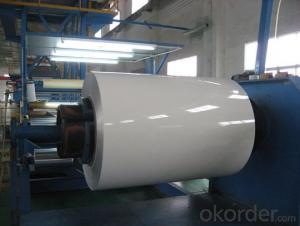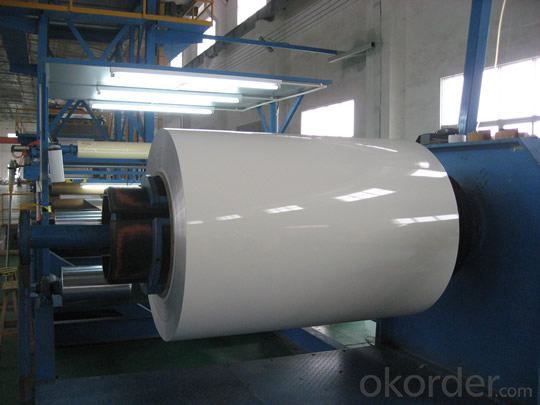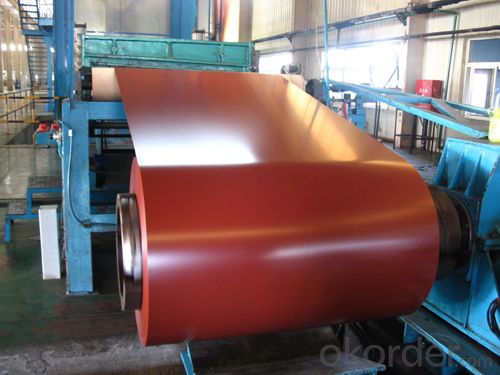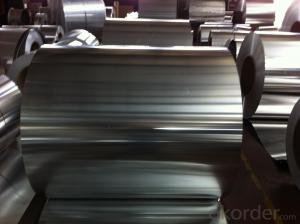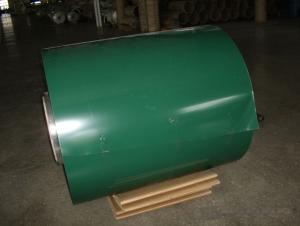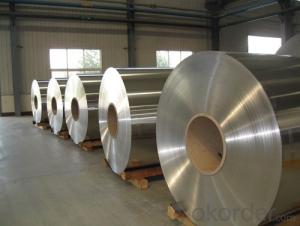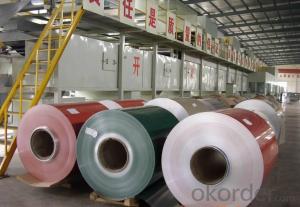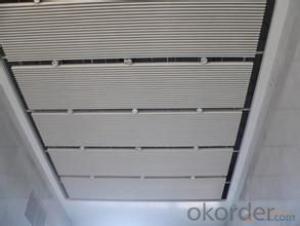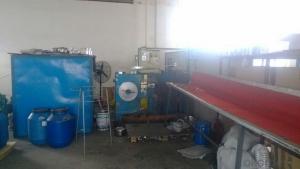Amerimax Aluminum Coil 1100 PE Aluminium Coil for Roofing/Ceiling/Gutter/Decoration
- Loading Port:
- Tianjin
- Payment Terms:
- TT OR LC
- Min Order Qty:
- 5 m.t.
- Supply Capability:
- 80000 m.t./month
OKorder Service Pledge
OKorder Financial Service
You Might Also Like
Specification
Alloy 1100 PE Aluminium Coil for Roofing/Ceiling/Gutter/Decoration
Specification
Grade
| 1000 Series: 1050 1060 1070 1100 1200 1235 etc. 3000 Series: 3003 3004 3005 3104 3105 3A21 etc. 5000 Series: 5005 5052 5083 5086 5154 5182 5251 5754 etc. 6000 Series: 6061 6063 6082 6A02 etc. 8000 Series: 8006 8011 8079 etc. |
Thickness | 0.05~10mm |
Width | <1600mm< span=""> |
Color | Metallic, Solid, RAL or by customer requirements |
Coating paint: | PVDF(Polyvinylidene Fluoride), PE(Polyester ) |
Coating thickness | as per customer’s request |
Gloss | 10-90%(EN ISO-2813:1994) |
Total coating thick | Polyester18~25micron(EN ISO-2360:1995) PVDF25 ~35micron(EN ISO-2360:1995) |
Coating hardness | 2H |
Protective film | PVC film, Colorless transparent or White-black |
Adhesion | 5B (EN ISO-2409:1994) |
Impact resistance | No cracking and peeling (A.S.T.M D2794-1993) |
Flexibility (T-bend) | 0T- 2T |
Temper | H16, H18, H24, H26, H26 |
Certification | ISO9001:2000, CE, SGS |
Coil's standard diameter | 1100mm |
Inner Diameter | 405mm/505mm |
Coil's standard weight | 2000kgs |
Payment | L/C ,T/T |
Packing
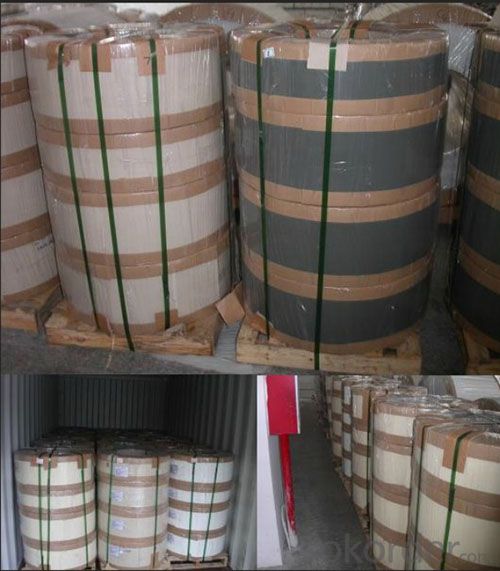
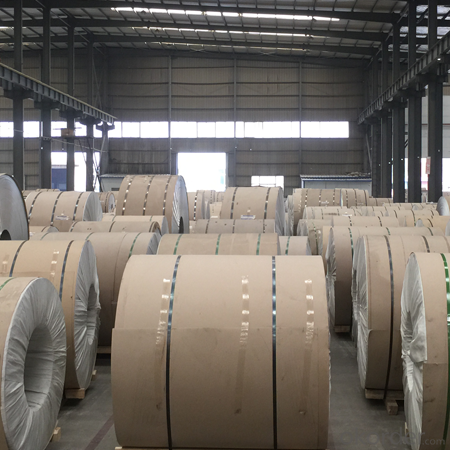
FAQ
Q: How can I request a product sample? A: The samples are free but freight should be collected. Please send sample list and courier account number by email.
Q: How can I request a product catalog? A: The hard copies of catalogs are free but freight should be collected. Please send courier account number by email. You are suggested to request a PDF catalog.
Q: Wha's your payment terms? A: One is T/T 30% before production and 70% against copy of B/L; the other is Irrevocable L/C 100% at sight.
Q: What's your trade terms? A: FOB, CNF(CFR), CIF, EXW.
Q: How long is the quality guarantee? A: All of our products have a period of quality guarantee since time of shipment. Please contact your salesman for more details, as different products enjoy different time of guarantee
- Q: Are aluminum coils compatible with different welding methods?
- Yes, aluminum coils are compatible with different welding methods such as MIG (Metal Inert Gas) welding, TIG (Tungsten Inert Gas) welding, and even resistance spot welding. These methods can be used to join aluminum coils effectively and efficiently.
- Q: What are some normal everyday products made from aluminum that I can use to recycle?
- Soda cans. Beer cans. Pie tins. Aluminum foil. Traffic signs. A few components of some automobiles like the hood (bonnet) and the cylinder heads for some engines. Airplanes - most all the structure metal and all the skins in all but the newest composite (fiberglass) planes. Aluminum recycling uses so much less energy than refining from bauxite ore that a high percentage of aluminum gets recycled.
- Q: Can aluminum coils be used in the production of consumer electronics?
- Consumer electronics can make use of aluminum coils. Aluminum, being a versatile and lightweight metal, offers numerous advantages in the manufacturing of electronic devices. With its exceptional thermal conductivity, it is perfect for dissipating heat in components like motors, transformers, and power supplies. Aluminum coils find widespread application in smartphones, laptops, and tablets. They are commonly utilized in constructing the housing or casing of these devices, providing a durable and lightweight solution. Moreover, aluminum's non-magnetic nature makes it suitable for electronic devices that require minimal magnetic field interference. Furthermore, aluminum coils exhibit good electrical conductivity, making them valuable in applications that necessitate efficient transmission of electrical signals. They are frequently used in manufacturing antennas, connectors, and other electronic components that require high conductivity. Additionally, aluminum is highly recyclable, aligning with the increasing demand for sustainable manufacturing practices. Incorporating aluminum coils into consumer electronics not only offers functional benefits but also contributes to a greener and more environmentally friendly production process. In conclusion, aluminum coils are indeed suitable for use in the production of consumer electronics due to their exceptional thermal conductivity, lightweight and durable properties, good electrical conductivity, and recyclability.
- Q: What is the maximum coil diameter for aluminum coils?
- The maximum coil diameter for aluminum coils can vary depending on the specific application and industry standards. However, in general, aluminum coils typically have a maximum diameter of around 72 inches (6 feet) to ensure ease of handling and transportation.
- Q: Is it possible to utilize aluminum coils for crafting artistic installations or distinctive creations?
- <p>Yes, aluminum coils can be used to create art installations and other unique creations. Their malleability, durability, and lightweight nature make them ideal for sculptural works. Artists can bend, shape, and weld aluminum coils into various forms, offering a wide range of design possibilities. The material's reflective surface can also add visual interest, especially when used in installations that interact with light and shadow. Additionally, aluminum's resistance to corrosion makes it suitable for outdoor art pieces, ensuring longevity and low maintenance.</p>
- Q: Hello, I'd like to ask you a question. Can the aluminum coil be continuously pressed and cooled by kerosene?
- Yes, water and oil are not miscible. They must be emulsified
- Q: This question asks for the current prices of aluminum coils, which may vary based on factors such as weight, thickness, and market conditions.
- <p>The prices of aluminum coils can vary significantly depending on several factors including weight, thickness, grade, and market demand. Prices are also influenced by global economic conditions and the current state of the commodities market. As of my last update, aluminum coil prices could range from a few dollars to several hundred dollars per pound, but for the most accurate and up-to-date pricing, it's best to check with a supplier or a commodities exchange, as these prices fluctuate regularly.</p>
- Q: Are aluminum coils suitable for outdoor applications?
- Indeed, outdoor applications can employ aluminum coils effectively. Renowned for its exceptional resistance to corrosion, aluminum has gained popularity for outdoor usage. It does not easily succumb to rust or decay when confronted with moisture, sunlight, or severe weather conditions. Moreover, aluminum coils possess characteristics of being lightweight, resilient, and having a favorable strength-to-weight ratio, rendering them well-suited for a range of outdoor purposes, including roofing, gutters, air conditioning systems, and outdoor furniture. Furthermore, aluminum stands out as an environmentally-conscious choice as it can be recycled extensively. Consequently, aluminum coils emerge as a dependable and pragmatic option for outdoor applications.
- Q: Can aluminum coils be used in the production of automotive parts?
- Yes, aluminum coils can be used in the production of automotive parts. Aluminum is a lightweight and highly malleable metal, making it an ideal material for manufacturing various automotive components. Aluminum coils can be used to create parts such as body panels, hoods, fenders, doors, and even engine components. The use of aluminum in the automotive industry offers several advantages, including improved fuel efficiency, better performance, and reduced vehicle weight. Additionally, aluminum coils are easy to work with and can be formed into complex shapes, allowing for greater design flexibility in automotive part production. Overall, the use of aluminum coils in the production of automotive parts is common and has become increasingly popular in recent years.
Send your message to us
Amerimax Aluminum Coil 1100 PE Aluminium Coil for Roofing/Ceiling/Gutter/Decoration
- Loading Port:
- Tianjin
- Payment Terms:
- TT OR LC
- Min Order Qty:
- 5 m.t.
- Supply Capability:
- 80000 m.t./month
OKorder Service Pledge
OKorder Financial Service
Similar products
Hot products
Hot Searches
Related keywords
